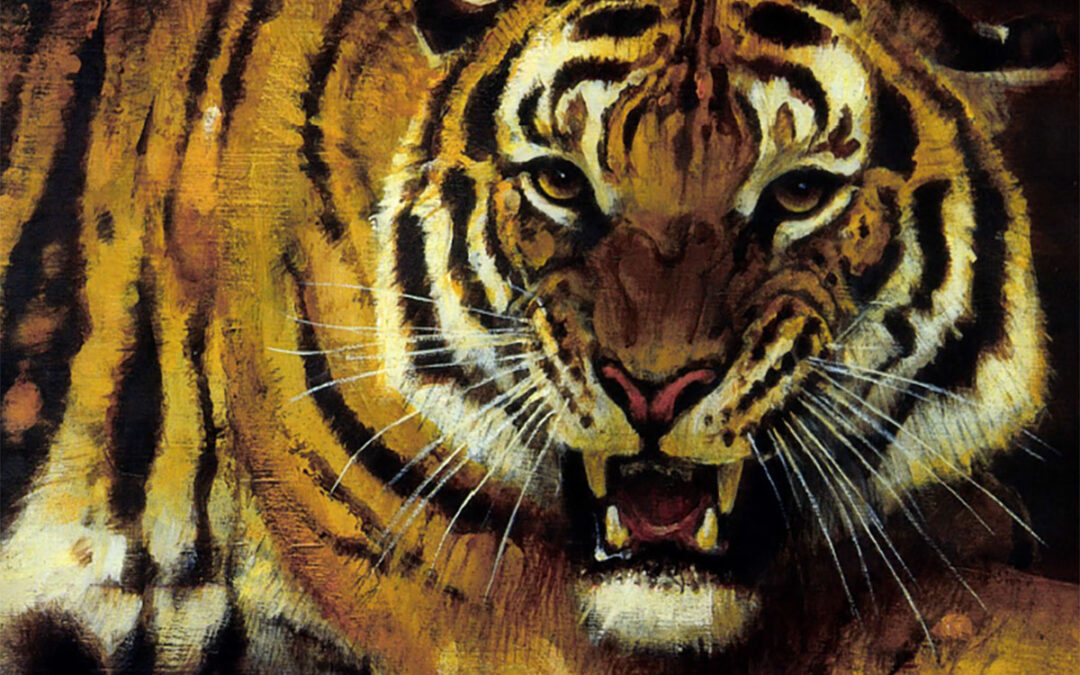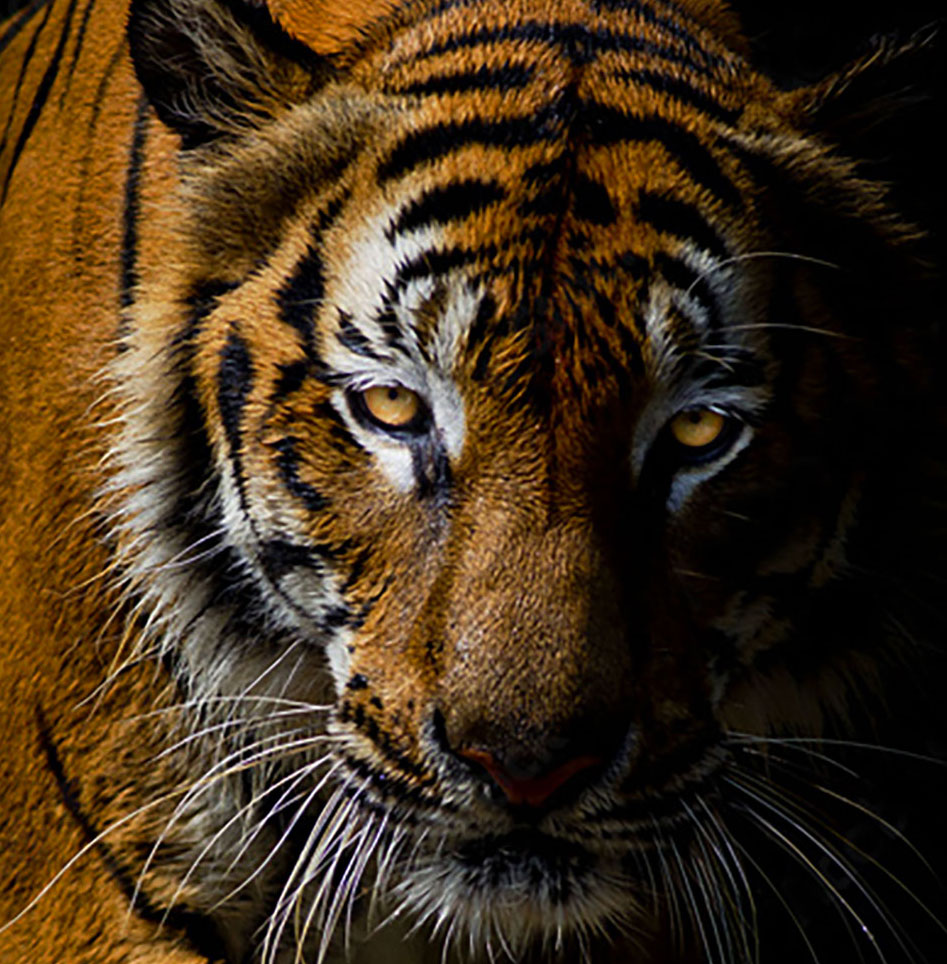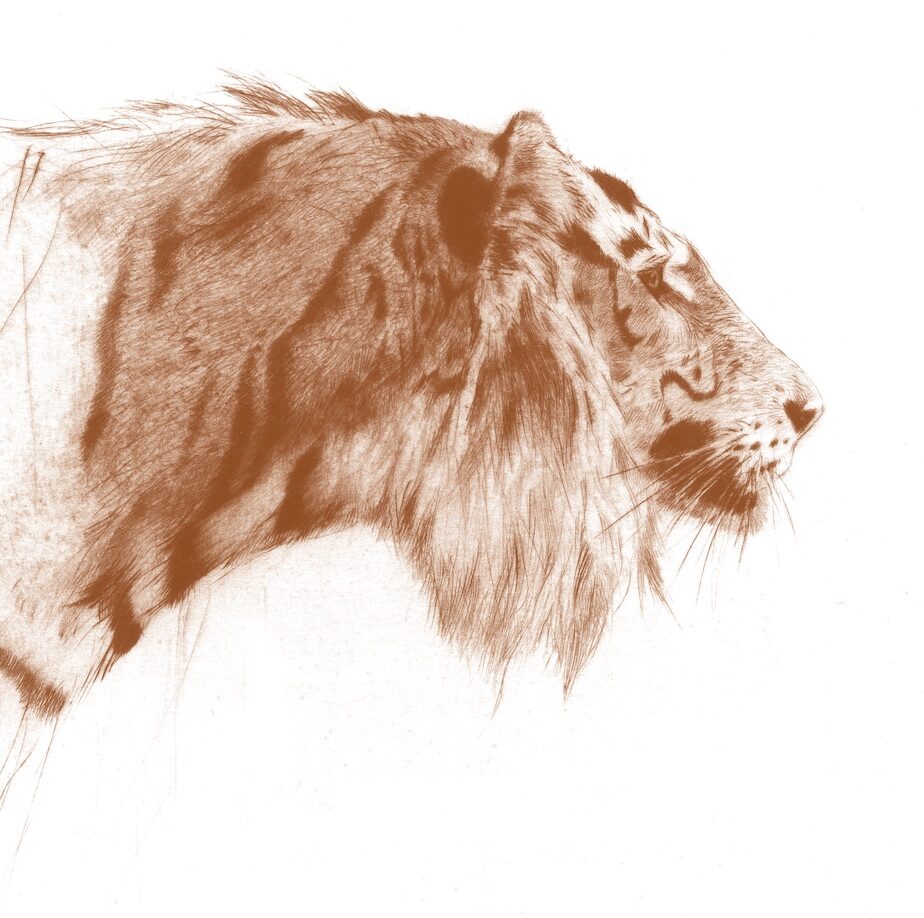American hunter Joseph Grew sat on the small pile of straw that settled as his bed in the comer of a dilapidated temple, listening intently to the savage tales of the 10 hunters sitting around him. From beneath a bluish-gray cloud of stagnant opium smoke and burning joss-sticks, the Chinese hunters told of pursuing tigers armed only with their hand-forged trident spears.
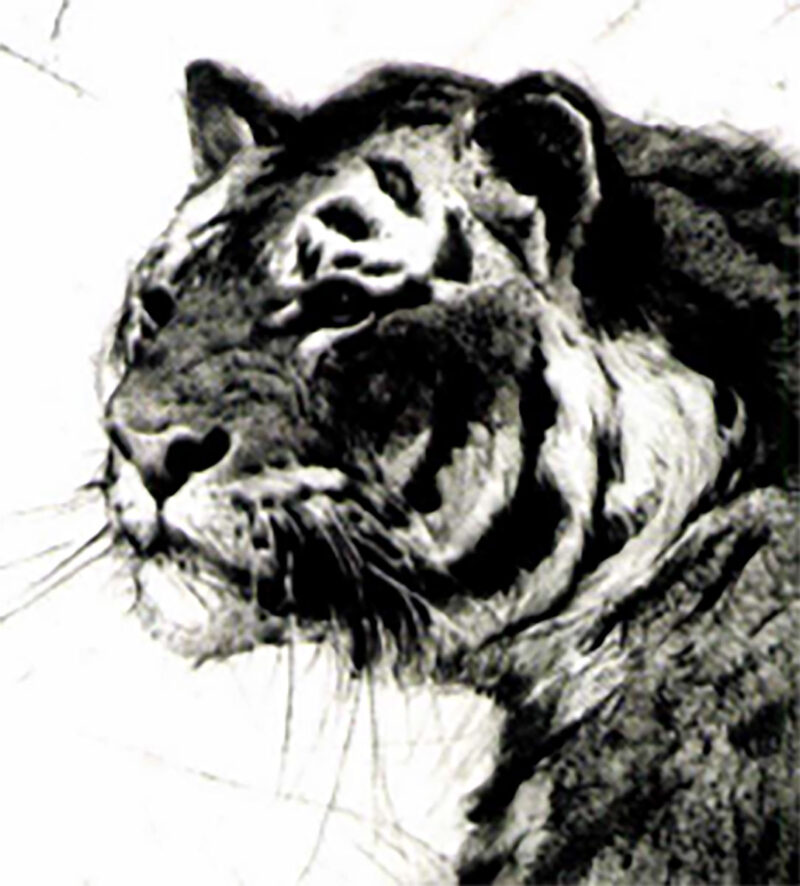 Using pantomime and subtle hand gestures, Grew’s translator, Lim Ek Hui, explained that the men derived their courage to hunt tigers from the idol they worshiped and by eating the flesh of the big cats. Listening to the hunters’ exploits and of their sources of strength, Grew must have wondered if he would possess the bravery and fortitude for the next day’s hunt. For at daybreak the hunters would lead him deep underground, through a labyrinth of tunnels and into the tiger’s very lair.
Using pantomime and subtle hand gestures, Grew’s translator, Lim Ek Hui, explained that the men derived their courage to hunt tigers from the idol they worshiped and by eating the flesh of the big cats. Listening to the hunters’ exploits and of their sources of strength, Grew must have wondered if he would possess the bravery and fortitude for the next day’s hunt. For at daybreak the hunters would lead him deep underground, through a labyrinth of tunnels and into the tiger’s very lair.
Tiger hunting was not new to Joseph Grew. He had hunted the big cats in the thick, tropical jungles of Malay, where the animals were driven to him by native beaters or where he shot them from the relative safety of a mounted elephant. But having grown tired of the rain, insects and fever so often associated with the tropics, Grew began searching for other and hopefully more exciting, tiger hunts. His search led him to the remote Chinese village of Chi Phaw.
Located on the coast of China almost midway between Shanghai and Hong Kong, Chi Phaw was a surrounded by interesting geographic features. From the sea, the narrow beach gave way to steep cliffs crowned by barren hills littered with rocks and boulders. Interlacing this moonscape were countless crevices and caves where the tigers retreated to rest after feeding. Just beyond this no-man’s land were flooded rice paddies that provided the lifeblood of the village. It was here, under the steep shadow of a jungle-covered mountain, that the villagers toiled for food, always under the constant threat of attack from a predator that regarded them as just another food.
Grew first learned of China’s man-eaters while aboard a junk sailing to Chi Phaw. One night, over coffee, the junk’s Scottish captain told Grew stories of villagers being dragged from their fields in broad daylight and of others being killed within shouting distance of their huts. Yet these same tigers were often seen playing like kittens on the beach in the moonlight.
Arriving at Chi Paw, Grew was housed in the village temple, a spider infested, shed-like building full of filth and debris. Residing in the temple with him and his interpreter were the local hunters, who killed the tigers for profit. What tiger meat they didn’t eat to maintain their bravery was sold along with the bones and skin to persons wanting to gain the tiger’s powers without having to face the big cats themselves.
The hunters were a tough-looking group. Their skin was so weathered as to look like parchment, and they adorned themselves with tiger claws and other ornaments from their kills. Despite their rough appearance and fierce reputation, Grew didn’t find them at all intimidating, since none of the men stood taller than five feet. When not hunting, the men just sat around smoking their opium pipes to the point of “oblivion.”
On the morning of his hunt, Grew found himself as the center of attention among the villagers. Many had never laid eyes on a white man before, and they watched Grew with deep curiosity as he bathed, dressed, ate and prepared for the hunt. Shortly after his morning performance, Grew was led by the hunters to the cliffs overlooking the sea.
The hunters explained how they tracked down the tigers deep within the earth. Carrying their trident spears along with torches of bamboo and strips of cloth soaked in oil, they would enter the maze of tunnels and chambers in an attempt to drive any tigers toward a cave entrance guarded by Grew.
Once Grew was in position, the hunters fit their torches and lowered themselves into the earth, the glow of their fires slowly fading like a waning candle. Soon the earth above the tunnels was dotted with tiny wisps of oily smoke as the hunters moved through the labyrinth.
Grew’s mind raced back to the story he had heard about the last two white men to hunt the caves. A year earlier H. P. Perry and A. H. Wheeler found themselves waiting outside a cave entrance just as Grew was now. Their hunt reached an explosive climax when four tigers sprang from the darkness of the caves almost simultaneously. Two days later Perry killed yet another tiger flushed from the tunnels. Thinking of Perry’s and Wheeler’s enormous success, Grew couldn’t help but feel he would soon have a trophy of his own.
Thin plumes of smoke continued to spiderweb through hairline cracks along the jumbled boulders. These faint markers were soon echoed by the metal against rock as the hunters scraped the walls of the caves with their spears, Grew readied his double-barreled .450 cordite powder express and instructed Lim to be ready to pass him the double-barreled 10-bore if need be.
A soft murmuring vented from the cave, its source moving closer and closer. Grew shouldered his rifle only to see the first of the hunters appear from the gloom. The tunnels, at least this set, were empty. Grew and his men repeated this exercise in other catacombs again and again until nightfall, all to no avail.
The next day Grew decided to take a different approach. Feeling that the tunnels were now contaminated, at least temporarily, with the smell of man and their oily torches, and that no tigers would use them for some time, he decided to set out bait. He purchased six small goats and staked them sporadically within a mile’s radius of the village. Hopefully, one of the goats would be hit by a tiger that would leave a trail that Grew and the hunters could track.
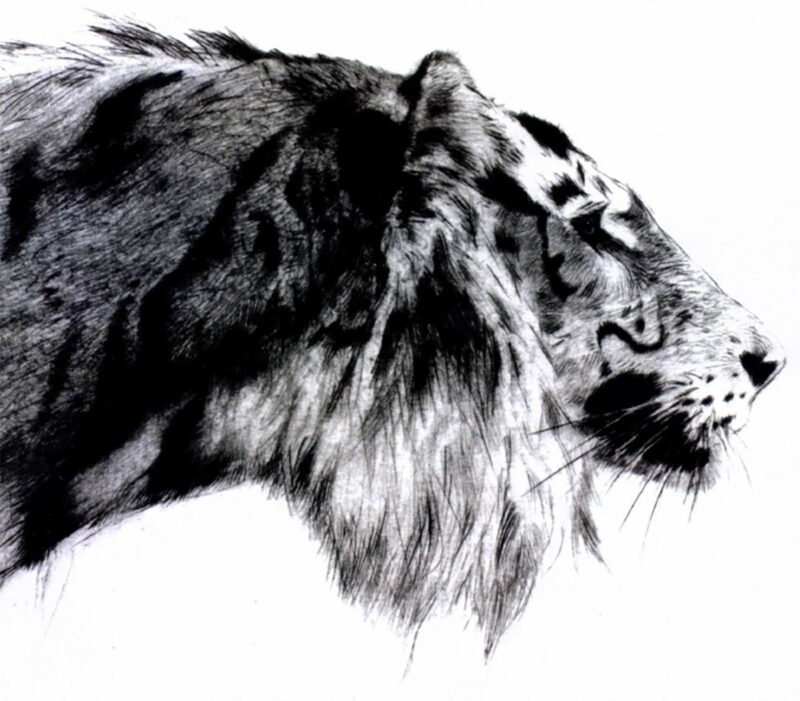 The following week was a study in tedium. Each morning Grew and his men would inspect the goats, only to find each one unscathed. The only thing to do was bring the animals back to the village to be fed before taking them out again at nightfall. During the long lull in-between, Grew spent his time reading, swimming or observing the villagers. At night the tables turned as the villagers gathered to watch Grew eat, read and smoke his tobacco pipe. By week’s end this daily monotony would come to an end.
The following week was a study in tedium. Each morning Grew and his men would inspect the goats, only to find each one unscathed. The only thing to do was bring the animals back to the village to be fed before taking them out again at nightfall. During the long lull in-between, Grew spent his time reading, swimming or observing the villagers. At night the tables turned as the villagers gathered to watch Grew eat, read and smoke his tobacco pipe. By week’s end this daily monotony would come to an end.
Grew was awakened at two in the morning by the incessant barking of a dog. He gave the disturbance little thought until the temple suddenly came alive with the bustling of hunters grabbing their spears. One of them thrust Grew’s rifle into his arms and frantically motioned for him to follow. Grew and the men emptied outside to find every dog barking furiously. Scanning the darkness, Grew caught a fleeting glimpse of an animal sneaking across the nearest paddy, but he couldn’t identify it. Once the invader was out of sight the dogs ceased their barking and returned to sleep.
The next morning Lim reported that a dog and one of the goats were missing, apparently carried away in the night. Convinced they were taken by a tiger, Grew decided to sit over a goat that evening in hopes the cat would strike again.
For most of the night Grew sat in near total darkness, waiting for the tiger he was certain would show. One never did. Realizing his strategy was not working, Grew returned to the village to catch a few hours of sleep. He awoke to find that two of the goats had been killed, including the animal he had just sat over. The goat had been dragged only 10 feet from its stake before it was almost entirely consumed. Had Grew remained at the bait all night, he might have gotten a shot at the tiger while it fed.
The other goat had been killed but not eaten. Grew took this as a sign that the tiger had eaten its fill before most likely venturing to the nearby caves. Rather than wait for the tiger to return to its kill, Grew summoned his men and began following the big cat’s trail. As he suspected, it led to the caves.
Despite everyone’s best efforts, no one could agree which tunnel system the tiger had entered; the trail was just too faint to follow over solid rock. In a move that Grew found “amusing,” the hunters decided to consult a higher power. They placed an idol on a rock before them and began to pray. After more than a half-hour of chanting and promises of offerings to the gods, one hunter stepped forward and threw two pieces of wood in the air. When the pieces landed, the hunter “read” the answer and pointed to a cave where he was convinced the tiger had entered.
The hunters ignited their torches and quickly climbed into the deep cave and out of sight. One of the natives returned after only five minutes and motioned the American to follow him. Grew looked to his translator who whispered: “Get ready, master, tiger inside. Very large tiger!”
Lim said the animal was in a deep cavern and the chances of driving him out were slim. Grew would have to go in after him.
With a firm grip on his rifle and with Lim following reluctantly behind, Grew entered the crevice, edging deeper and deeper into the earth. The tunnel opened into a small chamber dimly lit by the hunters’ torches. Before Grew could fully adjust his eyes to the stark light, several of the hunters motioned him toward a small hole in the wall. They said the tiger was trapped in a larger chamber at the end of the tunnel.
Grew peered into the narrow passage and then at the hunters. Lim confirmed what Grew already knew. The tunnel wasn’t large enough for more than one man. He would have to go after the tiger alone.
Grew climbed into the passage and began dragging himself forward. Inch by inch he snaked through the inky darkness, pulling his rifle behind him. Arter moving another 10 feet he saw the faint glow of a torch the hunters had pushed through a chink in the rock on the opposite side of the chamber. Grew had barely covered another foot when the tunnel reverberated with a booming growl. Another few feet and he could just make out a set of glowing green eyes staring right through him.
Grew had finally reached the opening to the chamber. The tiger was now less than four feet in front of him.
The big predator arched his back against the cave wall and released a deafening scream, his long carline teeth appearing like daggers in the muted torchlight. Panic gripped Grew as he pulled his rifle forward and fired blindly. The report snuffed the torch against the far wall, plunging the cavern into the kind of darkness known only in nightmares.
The ringing in Grew’s ears was replaced by the screams of the hunters behind him and savage growls from the cat before him. Grew fired again into the darkness and a shockwave of noise and percussion flooded the tunnel.
Grew strained to listen, eventually training in on the sound of a slow steady panting, which gave way to stillness as the tiger succumbed. Taking his first breath in what seemed like an eternity, Grew began backing out of the tunnel.
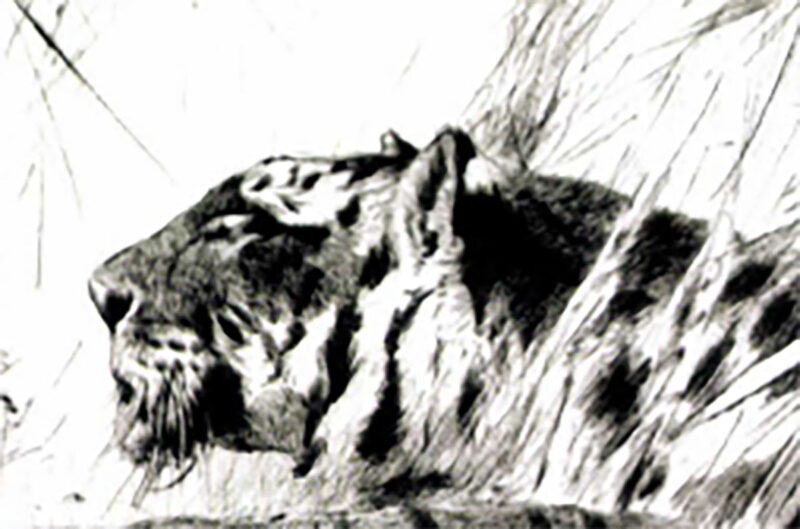 Several hours passed before the hunters got the tiger topside. Measuring 10-feet 6-inches from nose to tail, the cat was declared to be the largest ever taken in the area. Later that night, the hunters replenished their bravery by consuming the tiger during a huge celebration. Grew apparently still had enough bravery left within him as he opted not to eat any of his kill. Instead, he began making plans for his next tiger hunt.
Several hours passed before the hunters got the tiger topside. Measuring 10-feet 6-inches from nose to tail, the cat was declared to be the largest ever taken in the area. Later that night, the hunters replenished their bravery by consuming the tiger during a huge celebration. Grew apparently still had enough bravery left within him as he opted not to eat any of his kill. Instead, he began making plans for his next tiger hunt.
Editor’s Note: Little did Joseph Clark Grew know that his successful tiger hunt would lead to a career in public service. Rumor has it that Theodore Roosevelt was so impressed with Grew (and his Chinese tiger tale) that he sponsored him for a position in the Foreign Service in 1905. By 1920, Grew had become the ambassador to Denmark, and then served as ambassador to Turkey from 1927 to 1931. In 1932, he became the ambassador to Japan, serving as such until shortly after the bombing of Pearl Harbor.
Grew wrote many books including Sport and Travel in the Far East (1910), which contains an introduction written by his friend and mentor T. Roosevelt. Most of the background information for this article came from that book.
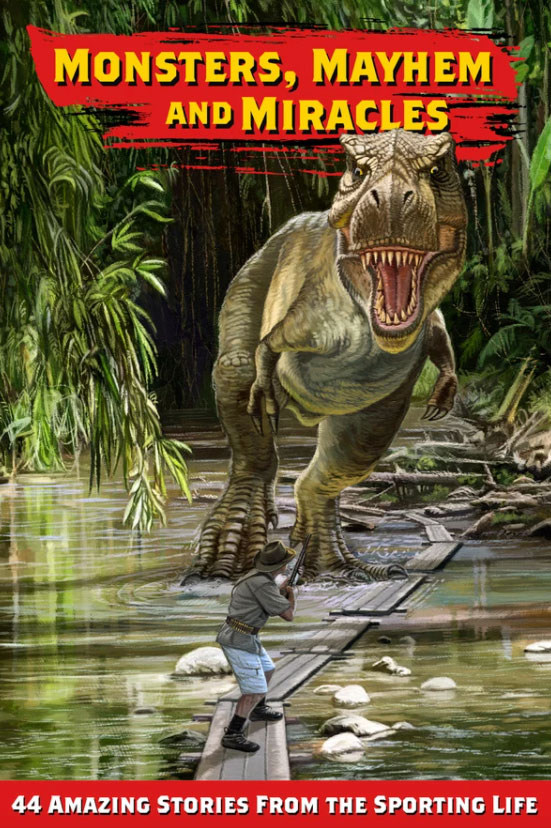 Truly a first in the world of outdoor publishing, Monsters, Mayhem and Miracles is a one-of-a-kind collection of unforgettable tales from the sporting world. Its 44 stories range from harrowing encounters with deadly predators to astonishing tales involving spirits, ghosts and even the devil himself.
Truly a first in the world of outdoor publishing, Monsters, Mayhem and Miracles is a one-of-a-kind collection of unforgettable tales from the sporting world. Its 44 stories range from harrowing encounters with deadly predators to astonishing tales involving spirits, ghosts and even the devil himself.
Featuring both fictional and true-to-life adventures, these astonishing stories are from the creative minds of such legendary authors as Peter Capstick, Archibald Rutledge, Gene Hill, Mike Gaddis, Roger Pinckney and John Madson.
On these 354 pages, you’ll also find hilarious predicaments, stunning feats of bravery and dramatic rescues as hunters and anglers are caught up in deadly encounters with everything from bears, moose and man-eating lions to sharks and crocodiles. Altogether, you’ll not find a more endearing and absorbing collection of wild and wacky stories. Buy Now

